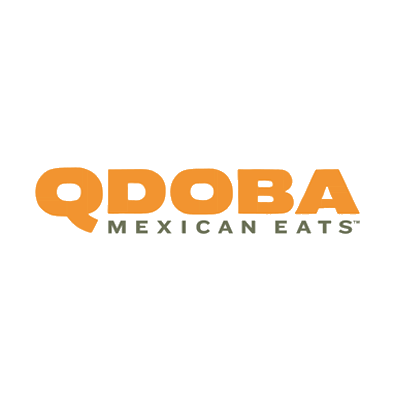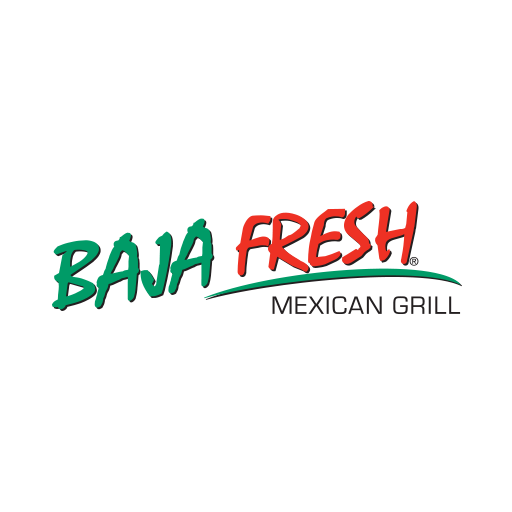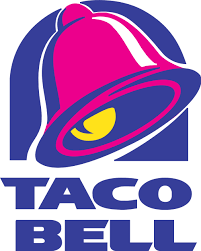Qdoba Franchise in 2025: Costs, Fee & FDD
Explore the costs and rewards of owning a QDOBA franchise. From initial investment details to potential earnings, this analysis dives deep into what it takes to join this popular fast-casual Mexican chain. Discover more today!

Table of Contents:
Founded in Denver, Colorado, in 1995, QDOBA Mexican Eats has established itself as a significant player in the fast-casual dining sector. Co-founded by Anthony Miller and Robert Hauser, QDOBA started with a vision to offer fresh, flavorful Mexican cuisine that stands out from the crowd. The brand quickly gained traction due to its innovative approach and commitment to quality, setting a new standard in the industry for customizable and delicious Mexican food.
QDOBA’s core offerings include a range of made-to-order burritos, tacos, quesadillas, and nachos. Customers can customize their meals with a variety of fresh ingredients, from flavorful meats and salsas to a selection of toppings. The restaurant also offers catering services and a range of specialty items like their 3-Cheese Queso and signature sauces. The core customer base is primarily composed of busy professionals and families who seek a quick yet satisfying meal option that doesn’t compromise on taste or quality.
As of now, QDOBA has grown to over 750 locations across the United States and Canada, showcasing its successful expansion and popularity. The franchise serves millions of customers daily, highlighting its strong market presence and consistent appeal. Its ability to maintain quality and flavor across a large number of outlets is a testament to its successful business model and operational efficiency.
QDOBA’s franchise support system is robust, offering comprehensive training programs that cover everything from operations to marketing. New franchisees receive hands-on support through an initial training program and ongoing assistance to ensure continued success. Additionally, QDOBA provides a well-established supply chain, marketing support, and a strong community of franchisees, which contributes to its ongoing growth and franchisee satisfaction.
QDOBA Franchise Insights
- QDOBA introduced the “Queso” bar, allowing customers to customize their meals with a selection of cheeses and sauces, setting a trend in fast-casual dining that many competitors have since adopted.
- Since its founding in 1995, QDOBA has expanded to over 750 locations across the U.S. and Canada, demonstrating its strong market presence and scalability.
- QDOBA serves millions of customers daily, reflecting its broad appeal and strong customer loyalty in the fast-casual segment.
- The brand’s catering services have grown significantly, contributing to its revenue and showcasing the popularity of QDOBA’s offerings for events and large gatherings.
QDOBA Franchise Key indicators
Total U.S. Franchised Units
571
3-Year Failure Rate
9%
vs industry 10%
Sales-to-Investment ratio
1.9:1
How much does it cost to open a QDOBA franchise?
Understanding the potential investment size and capital requirements is crucial when considering opening a QDOBA franchise. These financial commitments, including initial franchise fees, equipment costs, and ongoing operational expenses, impact the feasibility and profitability of the venture. Thoroughly evaluating these factors ensures that potential franchisees are prepared for the financial responsibilities and can make informed decisions about their ability to sustain and grow the business, ultimately contributing to long-term success.
Min & Max Investment
Opening a QDOBA franchise involves several key costs, which are outlined in Item 7 of the Franchise Disclosure Document (FDD). You can see a breakdown of the costs to open a QDOBA below from the most recent Item 7 below:
| Type of Expenditure | Minimum Investment | Maximum Investment |
|---|---|---|
| Franchise Fee | $30,000 | $30,000 |
| Development Costs (plans, legal fees, permits) | $10,000 | $50,000 |
| Leasehold Improvements | $180,000 | $500,000 |
| Furnishings, Fixtures, and Equipment | $185,000 | $380,000 |
| Signage | $5,000 | $50,000 |
| IT and Other Systems | $33,700 | $84,000 |
| Opening Inventory | $5,000 | $10,000 |
| Travel and Living Expenses While Training | Varies | Varies |
| Miscellaneous Pre-Opening Expenses | $5,000 | $15,000 |
| Grand Opening Advertising | $5,000 | $25,000 |
| Insurance | $5,000 | $10,000 |
| Liquor License | Varies | Varies |
| Real Property Lease/Purchase Costs | Varies | Varies |
| Business Licenses, Health Permits, and Similar Permits | $500 | $3,000 |
| Additional Funds (3 months) | $25,000 | $150,000 |
| Total Estimated Cost | $489,200 | $1,307,000 |
Item 7 in the Franchise Disclosure Document (FDD) is the “Estimated Initial Investment” section. It outlines the total costs a franchisee can expect to incur when starting a franchise, including the initial franchise fee, equipment, inventory, real estate, and other startup expenses. This section is crucial because it provides potential franchisees with a detailed understanding of the financial commitment required, helping them assess affordability and plan their investment strategy effectively.
Required Capital
When considering the investment required to open a QDOBA franchise or a similar fast-casual restaurant, it’s essential to account for various costs beyond just the franchise fee. Here’s a breakdown of the required financial commitments:
- Initial Capital Requirements You will typically need at least $489,000 to $1.3 million in capital to cover build-out costs, equipment, and other startup expenses. Assuming that you will finance your franchise investment, you should plan to have 20% of the total investment amount in the form of equity (cash) for the investment.
- Liquid Assets Requirement QDOBA generally requires franchisees to have $350,000 to $500,000 in liquid assets (cash, stocks, bonds). This is crucial to cover operating expenses and initial working capital needs until the business reaches profitability.
- Net Worth Requirement A net worth of at least $1,000,000 is often required for potential franchisees. This figure reflects your overall financial stability and ensures you have the financial backing to support the franchise over the long term.
How much does a QDOBA franchise owner make?
Calculating the salary of a QDOBA franchise owner involves analyzing gross sales to determine total revenue, assessing operational efficiency to understand profit margins, and accounting for franchisor fees and additional expenses such as rent, utilities, and payroll. Effective management of these factors can significantly impact the profitability and financial success of a QDOBA franchise owner. This comprehensive financial analysis helps estimate net profits, from which the owner’s salary can be derived. A clear understanding of these factors ensures accurate salary projections and financial planning for sustainable business operations.
QDOBA Revenue & Gross Sales
QDOBA’s recent revenue performance has been strong, with a median gross sales figure of $1,481,929. This impressive number highlights the brand’s continued popularity and successful business model within the competitive fast-casual dining industry. Franchisees can expect solid revenue potential, supported by QDOBA’s established market presence and consistent customer demand.
Which key factors impact the average revenue performance of QDOBA franchisees?
Several factors likely contributed to the strong performance of QDOBA’s U.S. franchisee median gross sales. The brand’s emphasis on fresh, customizable Mexican cuisine has resonated with a wide customer base, appealing to those seeking both quality and convenience. QDOBA’s ability to innovate, such as introducing new menu items and enhancing its digital ordering platform, has also helped attract and retain customers. Additionally, their strong marketing campaigns and loyalty programs have driven repeat business. The growth of QDOBA’s catering services and strategic location placements in high-traffic areas further boosted sales, contributing to the franchise’s overall robust performance.
QDOBA Franchise Operational Costs
When opening a QDOBA franchise, it’s crucial to understand the key primary ongoing operational costs that will impact your profitability. These costs are essential to keeping the business running smoothly and ensuring a high-quality customer experience. Below are some of the primary operational expenses you should consider:
- Staffing Costs Salaries, wages, benefits, and training for employees, including managers, cooks, and service staff, are significant ongoing expenses.
- Food and Beverage Supplies Regular inventory replenishment of fresh ingredients, beverages, and packaging is a substantial and consistent cost, particularly given QDOBA’s focus on quality.
- Utilities Electricity, water, and gas are necessary for daily operations, especially in a food-service environment where energy use is high.
- Maintenance and Repairs Ongoing upkeep of kitchen equipment, dining areas, and facilities is essential to maintaining operational efficiency and customer satisfaction.
- Rent and Lease Depending on your location, rent or lease costs can be a major ongoing expense, especially in prime or high-traffic areas.
By understanding and managing these costs effectively, you can help ensure the long-term success of your QDOBA franchise.
QDOBA Franchise Fees
When investing in a QDOBA franchise, it’s important to consider the various fees that contribute to your ongoing financial obligations. These fees are designed to support both the franchisor and franchisee in maintaining the brand’s quality, consistency, and growth. Below is a breakdown of the key fees you’ll need to account for:
- Royalty Fee QDOBA requires a royalty fee of 5% of gross sales, payable weekly. This fee goes toward continued brand support, including research and development, franchisee services, and overall operational guidance.
- Marketing Fee You’ll be contributing 2.25% of your gross sales weekly to QDOBA’s national marketing fund. This fee is used to fund brand-wide advertising campaigns that help drive traffic to your location and maintain QDOBA’s competitive edge in the market.
- Local Advertising In addition to the national marketing fee, franchisees must allocate 1.25% of gross sales to local advertising. This helps ensure that your specific location benefits from targeted marketing efforts, driving local customer engagement and awareness.
- Additional Fees There are additional fees for training programs, technology, and other items provided by QDOBA that may be applied.
Understanding these fees and how they support your franchise is crucial for maintaining a successful operation. By budgeting for these expenses, you can better manage your finances and focus on growing your business.
QDOBA Franchise Earnings
The earnings of a QDOBA franchise owner can vary based on factors like location, operational efficiency, and cost management. For owner-operators, there is potential for significant income. Based on recent data, the median gross sales for a QDOBA franchise are approximately $1,481,929.
For owner-operators, estimated earnings are around $222,000, reflecting an operating profit margin of 15%. Hands-on management by the owner can help optimize operations, leading to higher profitability. These figures demonstrate the potential financial rewards of running a QDOBA franchise, particularly for those who are actively involved in the day-to-day management of the business.
How to Open a QDOBA Franchise
Becoming a QDOBA franchisee involves a series of steps that ensure you are prepared and aligned with the brand’s values and operations. From the initial inquiry to the grand opening of your restaurant, here’s a breakdown of the process:
- Initial Inquiry You or your franchise specialist submits an initial inquiry basic information about your interest and background. You should also conduct thorough research on the franchise, including seeing all of the information available on the Vetted Biz franchise intelligence platform, including access to the most recent Franchise Disclosure Document (FDD).
- Interview and Due Diligence Participate in a formal interview with the QDOBA franchise team. You’ll also be encouraged to conduct due diligence, including visiting existing QDOBA locations and speaking with current franchisees to better understand the business.
- Franchise Agreement Signing Once both parties are satisfied, you’ll sign the franchise agreement, officially becoming a QDOBA franchisee. At this stage, you’ll pay the initial franchise fee and begin preparing for the next steps.
- Site Selection and Approval Work with QDOBA’s real estate team to identify a suitable location for your restaurant. The site will undergo approval based on factors like traffic, demographics, and visibility.
- Training Program Participate in QDOBA’s comprehensive training program, which covers everything from daily operations and management to marketing and customer service. Training typically includes both classroom and in-restaurant experiences.
- Restaurant Build-Out Oversee the construction and build-out of your QDOBA location, ensuring it meets brand standards. This includes working with contractors, obtaining necessary permits, and setting up equipment.
- Pre-Opening Marketing Collaborate with QDOBA’s marketing team to promote your upcoming opening. This phase involves local advertising, social media campaigns, and community outreach to build excitement and awareness.
- Grand Opening and Operations Finally, launch your QDOBA restaurant with a grand opening event. From here, you’ll transition into day-to-day operations, with ongoing support from QDOBA’s franchise team to help ensure your success.
Pros & Cons
Pros
Established Brand: QDOBA has over 25 years of experience in the fast-casual dining industry, offering strong brand recognition and a loyal customer base.
Flexible Menu: The customizable menu appeals to a broad demographic, catering to various dietary preferences and trends, which can drive customer traffic and sales.
Strong Digital Presence: The franchise has a robust online ordering and delivery platform, which has become increasingly important in today’s market.
Catering Revenue Stream: QDOBA offers catering services, providing an additional revenue stream for franchisees beyond regular in-store sales.
Cons
Competitive Market: The fast-casual Mexican food sector is highly competitive, with numerous players vying for market share, which can impact profitability.
Economic Sensitivity: The fast-casual dining industry can be sensitive to economic downturns, which may lead to fluctuations in customer spending and profitability.
Supply Chain Dependence: Franchisees may face challenges related to supply chain disruptions, which could affect ingredient availability, pricing, and overall operational efficiency.




